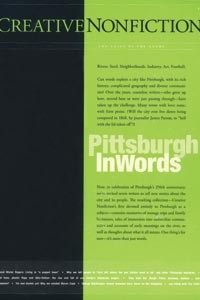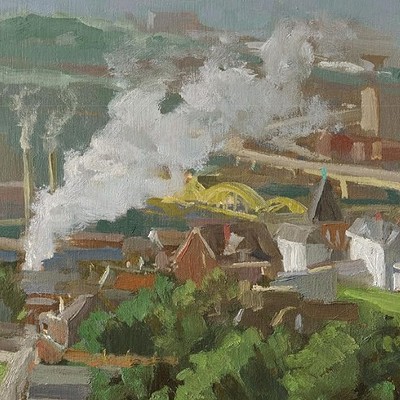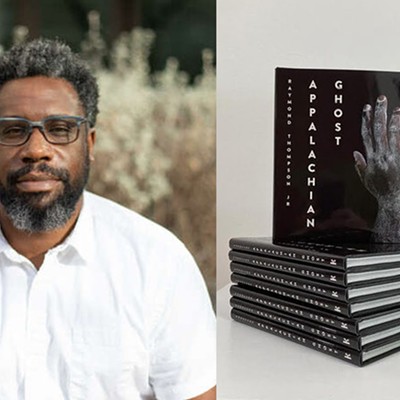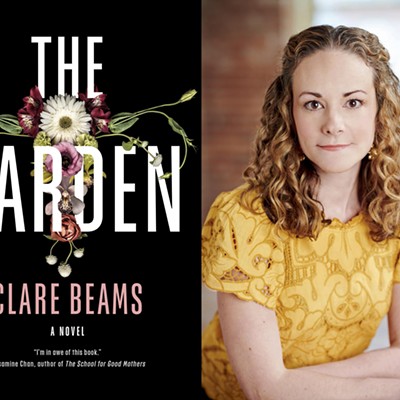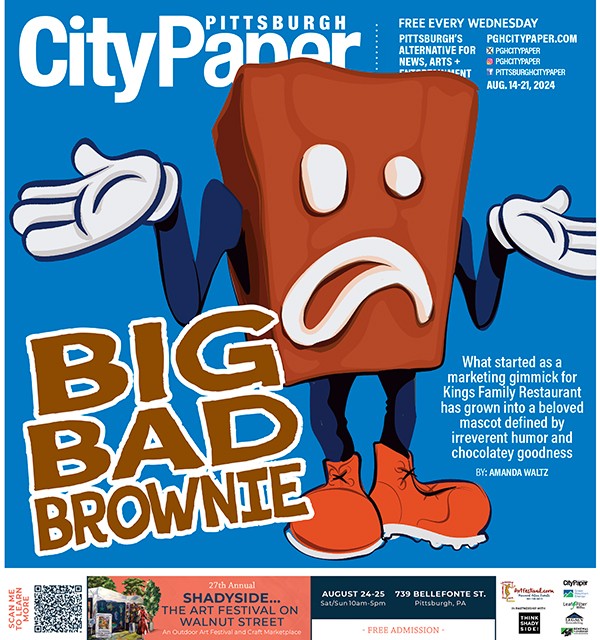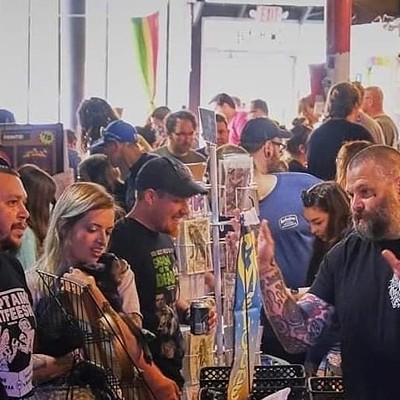Pittsburgh in Words
Creative Nonfiction, 55 pages, $15
"Writing about Pittsburgh" is a fraught enterprise. You either get tangled in clichés – don't make me repeat them – or spend half your time denying the clichés have snared you.
So what's surprising about Pittsburgh in Words, the 250th-birthday offering to the city from the locally based Creative Nonfiction Foundation, is that some of its most successful essays do accept the challenge of defining the place.
The short volume's seven pieces were commissioned by editor Lee Gutkind and crew out of more than 60 proposals submitted. And for sure, one of the better contributions simply implies Pittsburgh by thoroughly telling a story set here. In "M. Berger Co.," New York-based journalist Jeremy Smerd traces the history of the family business – and how, as something of a free spirit and nothing of a salesman, he faces a fading legacy built largely on military surplus. Smerd's enthusiastic evocation of the mercantile verve of his forebears is subtly tempered by a sense of mortality, and by the inevitability of change as played out in a Hill District stockroom.
Other pieces, less successful, do take an iconic approach. Erin E. Tocknell's "Rowing Through the Ruins" has an interesting premise: As a competitive rower at Carnegie Mellon, she grew fascinated by the communities she slipped past on the pre-dawn Allegheny after taking a class taught by professor David Demarest called "Reading the Built Landscape." But while Tocknell details her growing appreciation for the work done by faceless, vanished laborers in now-crumbling mills, there's too little irony in her literary juxtaposition of their back-breaking work with her optional, if strenuous pursuit of sport.
Kathleen Rooney Mara's remembrance of growing up the granddaughter of legendary Steelers owner Art Rooney, framed by her bittersweet homecoming after his death, in 1988, is unapologetically nostalgic. The anecdotes in Mara's "940" – about her childhood road trips with "Nonno," the taps he wore on his shoes and her grandmother's swearing – are agreeable enough. But Mara bypasses more interesting (and more thematically pertinent) material about how she became something of a Pittsburgh "outsider" after moving away at age 12.
Meanwhile, "In Pursuit of Puppets: A Pittsburgh Romance" finds a directionless 27-year-old experiencing a sort of redemption after she joins (almost accidentally) Pittsburgh's burgeoning puppetry community. The premise is endearing, and Missy Raterman surprises us with a few insights about how art can reframe existence: "Whereas the mind-boggling array of possibility in my personal life felt like an impenetrable forest, in the puppet world, it seemed more like a game." Still, "Pursuit" is a bit too navel-gazing.
The collection's strongest work engages very particular subject matter as a way to explore larger issues including – but not limited to – what Pittsburgh's all about. Probably not by coincidence, this also tends to be the work that gives the best sense of a writer venturing, if not out of his or her comfort zone, at least into a wider world beyond family and friends.
Mark Kramer's "Immigrant Stories" is a substantial essay on Pittsburgh's historical and current relation to foreign-born newcomers, built around the owner, employees and habitues of an Ethiopian restaurant in East Liberty. The thoughtfully structured piece deromanticizes immigrants – people who can "integrate without ever fully belonging" – even as Kramer asks how open the city is to cultural change. Interestingly, it's probably the least personal of the seven essays. But while we learn little about Kramer himself, we do get interesting material about rising immigration rates here, slightly deflating Pittsburgh's provincial image.
(It should be also noted that Pittsburgh in Words could stand more diversity itself. While it's good that most of the writers are under 40 years old, the collection has no African-American contributors – or, indeed, any writing about African Americans, aside from the Ethopians in "Immigrant Stories." Even on www.pittsburghinwords.org, the Web site that worthily archives these essays plus 14 earlier takes on Pittsburgh dating to 1862, the lone contributor of color is John Edgar Wideman.)
Easily the collection's most lyrical piece – the most fun to read – is Elena Passarello's "Double Joy: Myron Cope and the Pittsburgh Sound." It's part eulogy for the late, great writer and sportscaster; part essay on regional dialect; and part memoir of the Georgia native's time as a Pitt student, when she lost her accent and discovered a culture. Mostly, though, it's an ode to the wonder of a human voice (Cope's), and Passarello delivers with a poet's ear for how words couple and bounce: "Tissues, cavities and resonators are the real fonts, ballooning typeface into the pert, scrupulous O's of the Corn Belt; the two- or three-scooped O's of the Delta; or the lateral, flaccid O's of those like Cope ..."
The strongest piece, though, is Anjali Sachdeva's "Pod City." Starting with an unlikely gambit – a recap of the science-fiction novel Invasion of the Body Snatchers – Sachdeva crafts an engrossing rumination on how personal and regional identity intertwine. Her materials include visits to her senescent grandfather; the Heinz tchotchkes that are a link to him, the company he spent his life working for, and the city's past; the remaking of the Heinz factory into upscale condos; and the bizarre juxtaposition of Homestead's gleaming commercial Waterfront complex with the town's ragged old main drag, blocks away. While Sachdeva's brief vision of Pittsburgh's possible future is a little loopy ("frictionless floating highways"?), "Pod City" gives the best sense in this collection of how Pittsburgh's past is informing its present without consuming it whole.

